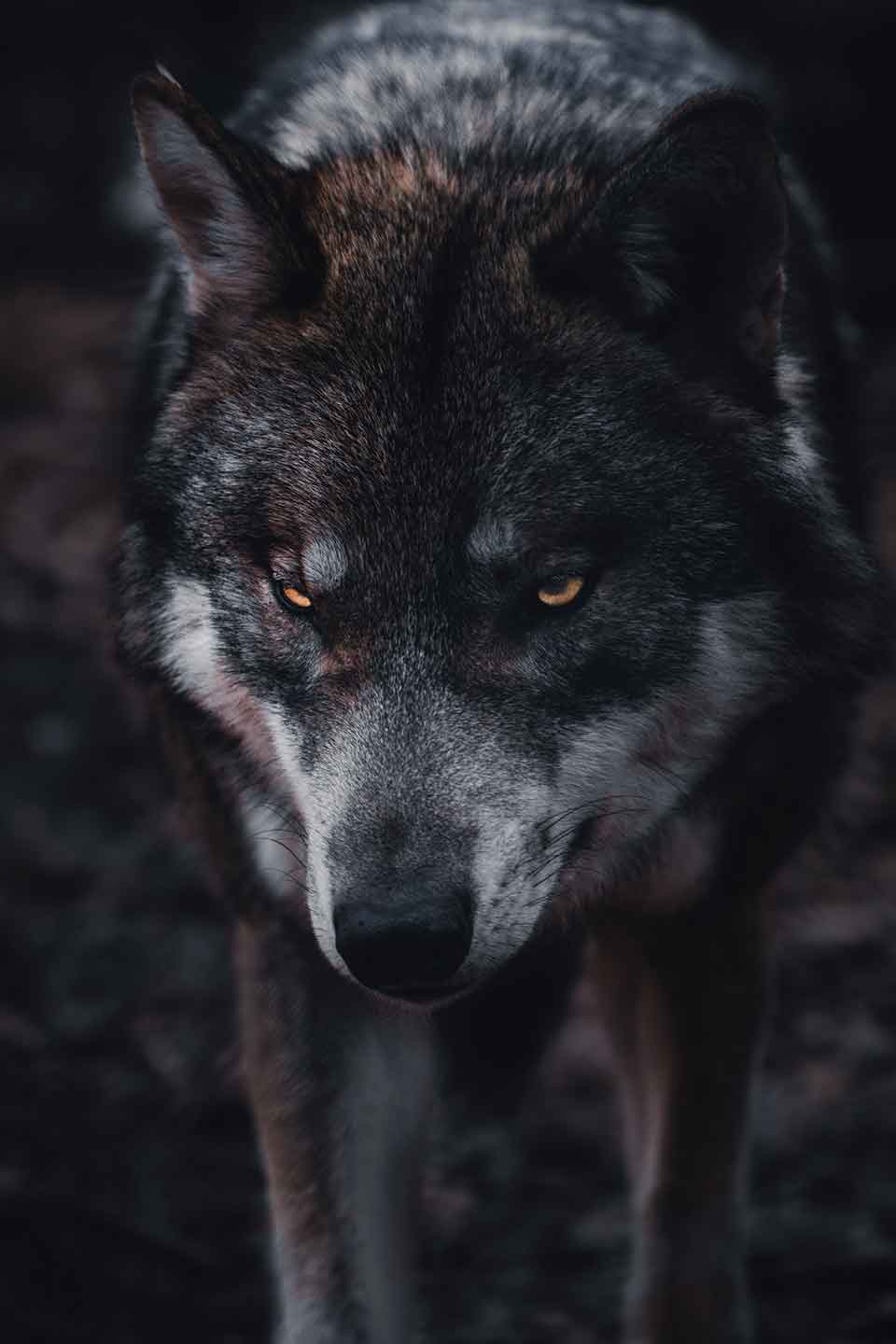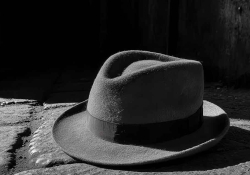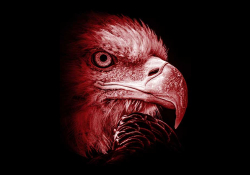WLT Student Translation Prize – Prose

Wolf Food (prologue)
by Marina and Sergey Dyachenko
translated by Katie Kassam
In this prologue to a science-fiction novella, Волчья сыть (Volch’ia syt’), the reader is introduced to many oblique references that hint at the wider society and history crafted by the Dyachenkos, as well as the true nature of the protagonist. It is this approach and presentation of the “strange” that sets the stage for the authors’ nuanced exploration of themes, including the binaries of human and animal, wild and domesticated, in the rest of the story.
The sea of tall grass billowed; dark, dense, and thick with sap. The tangy smell clouded his head.
Kim-Fields had led his small patrol hundreds of times down the well-trodden path that stretched along the border, along the line of beacons. After last night’s storm they had to be vigilant—and return to the outpost certain that not one beacon had been damaged.
They should’ve allowed Kim to go home a month ago. His tour had ended even earlier, in the spring. He had been studying to attend the engineering school named after his grandfather, Artie-Fields. But the entrance exams had closed, and his service had continued. No one was going to demobilize Kim, even with the outpost chock-full of rookies—diligent but unskilled—just like the two trailing, single file, behind Kim now, as if they needed him to feel the way.
All three of them reeked of tar. They steamed in their overalls, which had been soaked in a special compound. The acrid smell was meant to hide their own scent in case the line of beacons actually had been damaged. In reality, Kim knew, the compound only worked three times out of ten. It wasn’t hard for wolves to connect the smell of the overalls with the smell of prey.
Wolves.
For the two rookies walking, single file, behind him, it was just a scary word. They had only ever seen wolves during basic training, and from a distance—through a spotting scope.
Kim had never seen a real wolf up close either, but his three tours at the outpost at least gave him the right to look down on the first years . . .
The grass shivered on either side of the trail. To the left, three tosses of a wolf away (from now on I’ll measure distances in “wolf tosses,” Kim thought), stretched the crumbling trench marking the border. And at every hundred paces stood his grandfather’s great invention: the deterrent beacons that had finally ended their perpetual war against the wolves.
It would have cost Kim nothing to dodge the draft. But his mother had said his family had a spotlight on them. That the grandson of the great Artie-Fields should serve.
It was as if you could row across the grass tips in a boat; only, unlike the treacherous water, this green element would neither drown nor betray you.
The wind hovered above the field, warm and tranquil. Myriad scents interwove in its currents—the scent of pollen, the reek of the overalls, and that distinctive beacon smell. It was as if you could row across the grass tips in a boat; only, unlike the treacherous water, this green element would neither drown nor betray you.
Kim glanced back at the rookies; the shorter one’s nostrils were flared with greed. The taller one was brazenly chewing on a blade of grass, which, judging by the green juice dripping from the corners of his mouth, was far from his first. That’s not allowed, Kim wanted to say but didn’t; the morning had put him in an uncommonly peaceful mood. The morning dew, the wind, the smell of grass . . . And besides, the rookies got poor feed in the barracks . . .
Out where Kim had grown up, green grass was imported in briquettes. His sisters wouldn’t believe him when he told them about the wild, succulent . . .
Kim shuddered and slowed his pace.
He paused, trying to figure out what had startled him.
Generations of his ancestors—a long time ago, centuries ago—had frozen, just as he had, in the middle of the pasture, unable to explain why—and a moment later, no closer to an answer, hurtled into a run. And some had survived.
Gritting his teeth, Kim forced down the urge to bolt. He signaled to the rookies to freeze in place and pricked up his ears, raising a crossbow to his shoulder.
The new recruits probably thought it was some kind of training exercise or test, or that he was simply showing off. From the corner of his eye, Kim could see that the lanky one was in no hurry to let the half-chewed grass fall from his mouth. All the beacons, or as many as were in Kim’s line of sight, were in good repair, and the weather vanes were spinning at the top of each tower, which meant neither the outpost nor his patrol were under threat . . .
No trenches, palisades, or weapons could hold back the wolves as reliably as the round tin funnels that emitted an alarm only wolves could hear. That was what his grandfather had said. That was what they taught children in school. That was what they drilled into new recruits during basic training.
The grass quivered in the wind. Kim could physically feel his own scent trickling out from under the protective stench of his overalls. Trickling out, and spreading across the field . . .
“Fall back,” he said, out of the corner of his mouth. “Turn around . . . March!”
The blade of grass fell from the taller rookie’s mouth; the first years retreated slowly at first, then suddenly spun around and rushed back along the path. For a moment Kim imagined them returning to the outpost, terrified in their sweaty overalls, reporting that their commander had been frightened by his own shadow—and then Kim himself, returning half an hour later, clinging to the remnants of his pride as he willed the ground to swallow him . . .
The taller one took the lead. The shorter rookie fell behind, stumbled, and tossed aside his unwieldy crossbow.
Two waves of wind surged up to the right and left of the trail. A moment later gray shadows leapt into the sky.
The lanky rookie managed a cry of pain. The shorter one didn’t even manage that—his head was severed effortlessly from his body, which was still running, tossing the crossbow behind him. A moment later a quiet crunch reached Kim’s ear.
Within a second, two bloodied sacks lay where Kim’s subordinates had been; the gray beasts had deftly and, seemingly, almost disdainfully ripped the stinking overalls from their bodies.
Not one crossbow had been fired.
Kim stood, positioning his weapon in front of him. In the complete quiet, even the wind had fallen silent—the torn fabric crackled, and the beacons creaked on their towers.
“We’re not afraid of the big gray wolf!” Grandad would sing sometimes, throwing a young Kim into the air. “We’re not afraid of the big gray wolf, when the beacons sound, we see the truth . . .”
Grandad had died two years ago.
Without looking up from the occupied wolves, Kim retreated a step. His lips trembled in desperation.
He’d always had such faith in his grandfather’s invention.
Grandad had betrayed him. Wolves should be afraid of the beacons—these wolves clearly weren’t.
Grandad had betrayed him. Wolves should be afraid of the beacons—these wolves clearly weren’t.
They towered above him—their gray carcasses loomed above the grass tips. Kim thought he could have walked under the belly of the tallest wolf without even ducking. Their round, muscular paws reminded him of the wooden piles that his grandmother’s house stood on. The wolves were devouring his comrades; they seemed not to have noticed Kim at all. He took another step backward, and the beast closest to him lifted its muzzle.
It had attentive eyes that showed no trace of evil. Where are you going? its reproachful gaze asked. Hold on, we haven’t finished yet . . .
Kim froze; the wolf returned to its meal. The wind chased the smell of pollen and blood across the field. Kim retreated once again—and once again met the wolf’s eyes.
An ancient fear, the primitive horror of the innocent prey before a hungry predator, flooded him. In an instant, the military skills he had trained so hard for were shamefully stripped away. Kim hurled his crossbow at the wolf and fled.
He felt like he was getting away. Like he was still running—even when heavy paws descended onto his shoulders in an almost friendly embrace, and closed around his throat . . .
Translation from the Russian

















